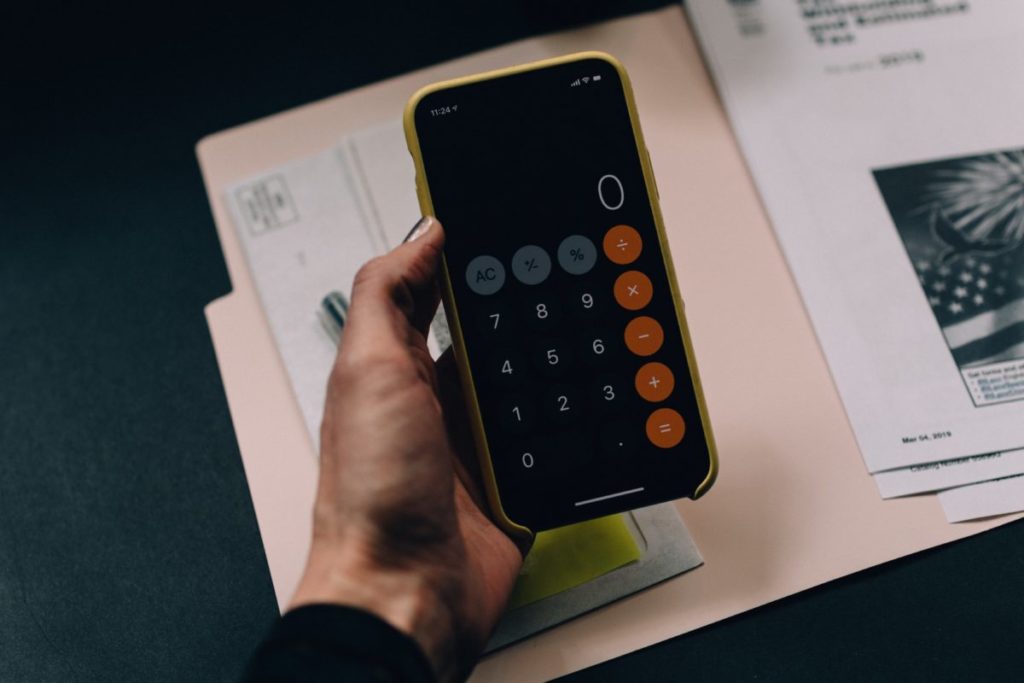Making a budget – and sticking to it – isn’t always easy, but it’s well worth your time.
Whether you’re looking to change your spending habits or need to manage a reduced income at university, it’s always a good idea to work out your budget.
It’s surprising to see how many things you spend money on in any given month. And how much you actually spend can be an eye-opener.
Read on for our top tips to help you budget more effectively, whatever stage you’re at.
1. Understand the amount of money you have to manage
 First things first, it’s important to get to grips with the amount of money you have to manage – whether that’s each week, fortnight or month. Whatever works for you. If you get paid weekly, it’s a good idea to come up with a weekly budget, and so on.
First things first, it’s important to get to grips with the amount of money you have to manage – whether that’s each week, fortnight or month. Whatever works for you. If you get paid weekly, it’s a good idea to come up with a weekly budget, and so on.
As well as the income you have from jobs, think about any other benefits or funding you’re entitled to, such as child benefit or Universal Credit.
If you’re a student, you might have a maintenance loan, and grants for children or adult dependents. If you’re entitled to NHS funding, you might have a training grant, parental support or travel expenses to take into account.
2. Decide who your budget is for
 Is your budget just for you, or is it for your partner and family too? Sometimes it’s difficult to separate family finances, so a budget is something you’ll have to sit down and work out together.
Is your budget just for you, or is it for your partner and family too? Sometimes it’s difficult to separate family finances, so a budget is something you’ll have to sit down and work out together.
3. Get to grips with your bills
 You should get in the habit of knowing what bills you have and when they’ll need to be paid. Usually, these are set things that you have agreed to pay and aren’t easily changed. Consider your rent or mortgage, gas and electric, water, council tax and your internet/TV.
You should get in the habit of knowing what bills you have and when they’ll need to be paid. Usually, these are set things that you have agreed to pay and aren’t easily changed. Consider your rent or mortgage, gas and electric, water, council tax and your internet/TV.
It might be a good idea to set up a separate bank account for your bills to come out of. That way, it’s easier to manage your money and avoid spending bill money on other things.
4. Calculate your regular expenses
 Next, think about what other regular expenses you have. Essentials like food and toiletries, clothing, travel and parking and the cost of running a car should be factored into your planning. But you’ll also have non-essentials to think of too, like socialising, eating out, trips and holidays.
Next, think about what other regular expenses you have. Essentials like food and toiletries, clothing, travel and parking and the cost of running a car should be factored into your planning. But you’ll also have non-essentials to think of too, like socialising, eating out, trips and holidays.
5. Don’t forget the one-off spends
 We all have one-off spends that affect our budgeting, whether that’s a new washing machine, next year’s flat deposit, a new car, a holiday or a special treat.
We all have one-off spends that affect our budgeting, whether that’s a new washing machine, next year’s flat deposit, a new car, a holiday or a special treat.
If you know you have something coming up in the next year, it’s a good idea to work out the cost of that and put money aside each month to help cover the cost.
Unfortunately, unexpected things will pop up from time to time, from a flat tyre to a broken telly. If you can, it’s a good idea to leave some reserve in your budget across the year ‘just in case’.
6. Create a budget plan
 A budget plan is a great way to visually display how much money you have access to and how much money you’re spending. It allows you to break your budget down by week, month or semester.
A budget plan is a great way to visually display how much money you have access to and how much money you’re spending. It allows you to break your budget down by week, month or semester.
There are many services that offer free budgeting tools – such as Martin Lewis’ Money Saving Expert. If you’re a student at Teesside University, you get free access to Blackbullion which has a fantastic budget calculator, as well as lots of other great financial advice.
7. Be accurate with your numbers
 It’s easy to underestimate our spending but try to be as accurate as you can. If you’re not sure, always overestimate rather than underestimate – that way, you’ll have cash left over rather than coming up short.
It’s easy to underestimate our spending but try to be as accurate as you can. If you’re not sure, always overestimate rather than underestimate – that way, you’ll have cash left over rather than coming up short.
8. Shop around
 This is a useful tactic for anyone – and well worth your time. Often it pays to shop around to get the best price for what you need.
This is a useful tactic for anyone – and well worth your time. Often it pays to shop around to get the best price for what you need.
Say your broadband deal is going up, rather than just accepting that, give your provider a call or message to renegotiate a better price. Yes, I know, haggling isn’t always in our nature, but you might be surprised at how much you could save.
And check for any discounts you’re entitled to when online shopping. If you’re a student, there are lots of ways you can get discount on top products, including Student Beans, TOTUM and UNiDAYS. Lots of employers also have discounts for their staff too – especially if you work for the NHS or in education. It’s always worth checking.
9. Look for extra ways to make money
 With free apps out there like Vinted and Depop, you can declutter your wardrobe and recoup a little bit of what you’ve spent, too. Plus, it’s kinder to the environment by helping your clothes to find new life elsewhere.
With free apps out there like Vinted and Depop, you can declutter your wardrobe and recoup a little bit of what you’ve spent, too. Plus, it’s kinder to the environment by helping your clothes to find new life elsewhere.
And it’s certainly always worth bearing them in mind when you’re looking for your next fashion fix before paying full price!
We hope these tips will help you get to grips with your finances. If you have any top money-saving advice to share, leave it in the comments.


